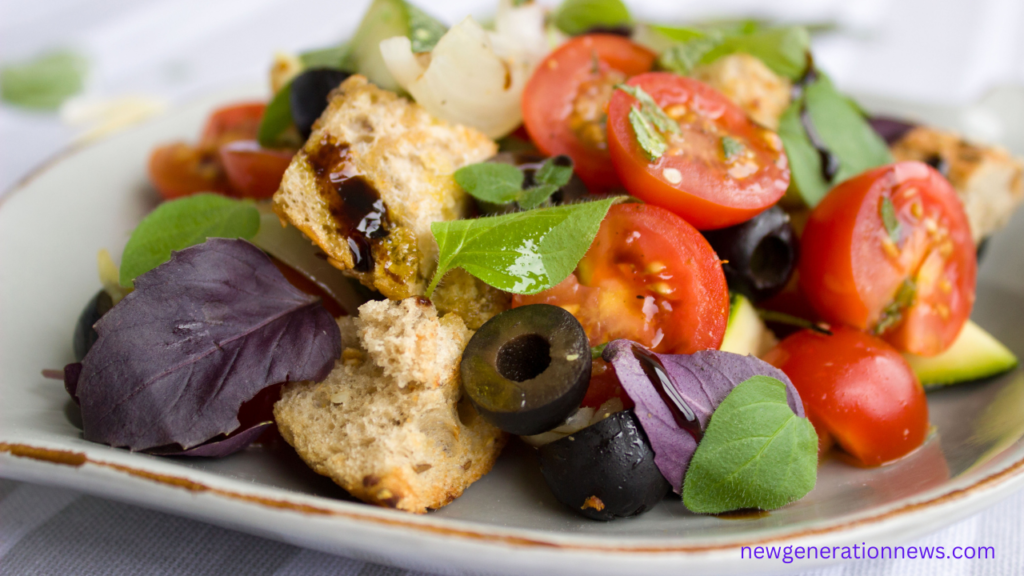Keto, Paleo, Vegan, and Beyond showcase the expanding diversity of diets in today’s world, mirroring our evolving perspectives on food, health, and environmental consciousness. From the high-fat, low-carb ketogenic diet to the ancestral eating principles of the paleo diet and the plant-based ethos of veganism, there’s a wide spectrum of dietary approaches to choose from. Each has its own philosophy, benefits, and passionate followers. Yet, amidst this diversity, there’s a unifying thread – a shared commitment to nourishing the body and optimizing health.
The Ketogenic Diet: Rewiring Metabolism
The ketogenic diet has gained immense popularity in recent years, primarily for its potential to promote weight loss and improve metabolic health. This diet, characterized by its low carbohydrate and high fat content, induces a metabolic state known as ketosis, prompting the body to utilize fat for energy rather than glucose. While initially developed to treat epilepsy, it’s now embraced by many for its purported benefits in managing conditions like diabetes, PCOS, and neurological disorders.

Advocates of keto praise its ability to stabilize blood sugar levels, enhance mental clarity, and provide sustained energy throughout the day. However, critics raise concerns about its restrictive nature, potential nutrient deficiencies, and long-term sustainability.
The Paleo Diet: Eating Like Our Ancestors
Inspired by the dietary habits of our Paleolithic ancestors, the paleo diet emphasizes whole, unprocessed foods such as lean meats, fish, fruits, vegetables, nuts, and seeds while avoiding grains, legumes, dairy, and processed foods. Proponents argue that it aligns with our genetic makeup and offers numerous health benefits, including weight loss, improved digestion, and reduced inflammation.

By eliminating modern processed foods and focusing on nutrient-dense, whole foods, the paleo diet encourages a return to simpler eating patterns that prioritize quality over quantity. However, critics question its historical accuracy, sustainability, and potential lack of certain nutrients found in excluded food groups.
Veganism: Compassion for Animals and the Planet
Veganism goes beyond just a dietary choice; it’s a lifestyle rooted in compassion for animals and a commitment to reducing environmental impact. A vegan diet excludes all animal products, including meat, dairy, eggs, and honey, and instead relies on plant-based foods such as fruits, vegetables, grains, legumes, nuts, and seeds.

Advocates of veganism tout its benefits for animal welfare, environmental sustainability, and human health. Research suggests that a well-planned vegan diet can lower the risk of chronic diseases like heart disease, diabetes, and certain cancers. Moreover, by reducing reliance on animal agriculture, vegans aim to mitigate environmental issues such as deforestation, water pollution, and greenhouse gas emissions.
However, some critics argue that a poorly planned vegan diet may lack essential nutrients like vitamin B12, iron, calcium, and omega-3 fatty acids. They also raise concerns about the ethical implications of monocrop agriculture and the environmental impact of certain plant-based foods.
Beyond Keto, Paleo, and Vegan: Exploring Dietary Diversity
While keto, paleo, and vegan diets dominate headlines, there’s a myriad of other dietary approaches worth exploring. From Mediterranean and DASH (Dietary Approaches to Stop Hypertension) to flexitarian and intuitive eating, each offers unique perspectives on health and wellness.
The key lies in finding a dietary approach that aligns with your individual needs, preferences, and values. Rather than adhering rigidly to a single ideology, consider incorporating elements from various diets to create a personalized approach that prioritizes balance, diversity, and enjoyment.
Embracing the diversity of diets doesn’t mean subscribing to a one-size-fits-all mentality; it’s about honoring the rich tapestry of culinary traditions, nutritional philosophies, and cultural practices that shape our relationship with food. Whether you’re keto, paleo, vegan, or exploring beyond these labels, let’s celebrate the power of food to nourish the body, nurture the soul, and unite us in our shared journey towards optimal health and well-being.
Honoring Individuality: A Flexible Approach to Nutrition
In our quest for health and vitality, it’s crucial to acknowledge that no single diet suits everyone. Our bodies are unique, and factors such as genetics, lifestyle, and personal preferences play a significant role in determining what works best for us. Rather than adhering strictly to dietary dogma, consider adopting a flexible approach that prioritizes individuality and experimentation.
This approach involves listening to your body’s cues, tuning into hunger and satiety signals, and making mindful food choices based on how different foods make you feel. It’s about cultivating a healthy relationship with food that honors both physical and emotional well-being.
Finding Common Ground: Nutrient Density and Whole Foods
Despite their differences, keto, paleo, vegan, and other dietary approaches share a common emphasis on nutrient-dense, whole foods. Whether you’re loading up on leafy greens, indulging in grass-fed steak, or savoring a creamy coconut curry, prioritizing whole, minimally processed ingredients is essential for optimal health.
By focusing on nutrient density, we ensure that our bodies receive the vitamins, minerals, antioxidants, and phytonutrients necessary for thriving. Whether it’s the vibrant colors of fruits and vegetables, the omega-3 fatty acids found in wild-caught fish, or the fiber-rich goodness of whole grains and legumes, diverse diets offer a plethora of nutrient-rich options to explore.
Embracing Culinary Creativity: The Joy of Cooking
One of the most rewarding aspects of exploring diverse diets is the opportunity to unleash your culinary creativity. Whether you’re experimenting with new flavors, reinventing classic recipes, or discovering exotic ingredients, the kitchen becomes a canvas for self-expression and exploration.
From whipping up a batch of cauliflower rice sushi rolls to crafting decadent avocado chocolate mousse, there’s no shortage of delicious and nutritious dishes to delight the senses. By embracing culinary creativity, we not only nourish our bodies but also feed our souls, fostering a deeper appreciation for the artistry and diversity of food.
Cultivating Mindful Eating: Savoring the Experience
In our fast-paced world, it’s all too easy to rush through meals without truly savoring the experience.Engaging in mindful eating encourages us to embrace a deliberate pace, fully awaken our senses, and foster a profound bond with the nourishment before us.
Whether you’re sipping bone broth mindfully, savoring the crunch of fresh vegetables, or relishing the creaminess of a plant-based curry, mindful eating enhances the pleasure and satisfaction of each bite. By paying attention to the flavors, textures, and aromas of our food, we can better tune into our body’s hunger and fullness cues, leading to greater satisfaction and enjoyment.
In Conclusion: Celebrating Diversity in Diets
In a world of dietary dogma and nutritional trends, embracing the diversity of diets reminds us that there’s no one-size-fits-all approach to health and wellness. Whether you’re keto, paleo, vegan, or somewhere in between, let’s celebrate the richness and variety of dietary philosophies that nourish our bodies, fuel our passions, and unite us in our shared journey towards vibrant health and vitality. So, let’s raise a fork (or spoon) to the kaleidoscope of flavors, traditions, and cultures that make up the tapestry of our culinary world. Cheers to embracing the diversity of diets and savoring every delicious moment along the way!
You might be interested to read 1) Unveiling the Unseen: The Intricate Link Between Microplastics, Placenta, and Plastic Pollution 2) Weight Gain Supplements: A Comprehensive Guide

